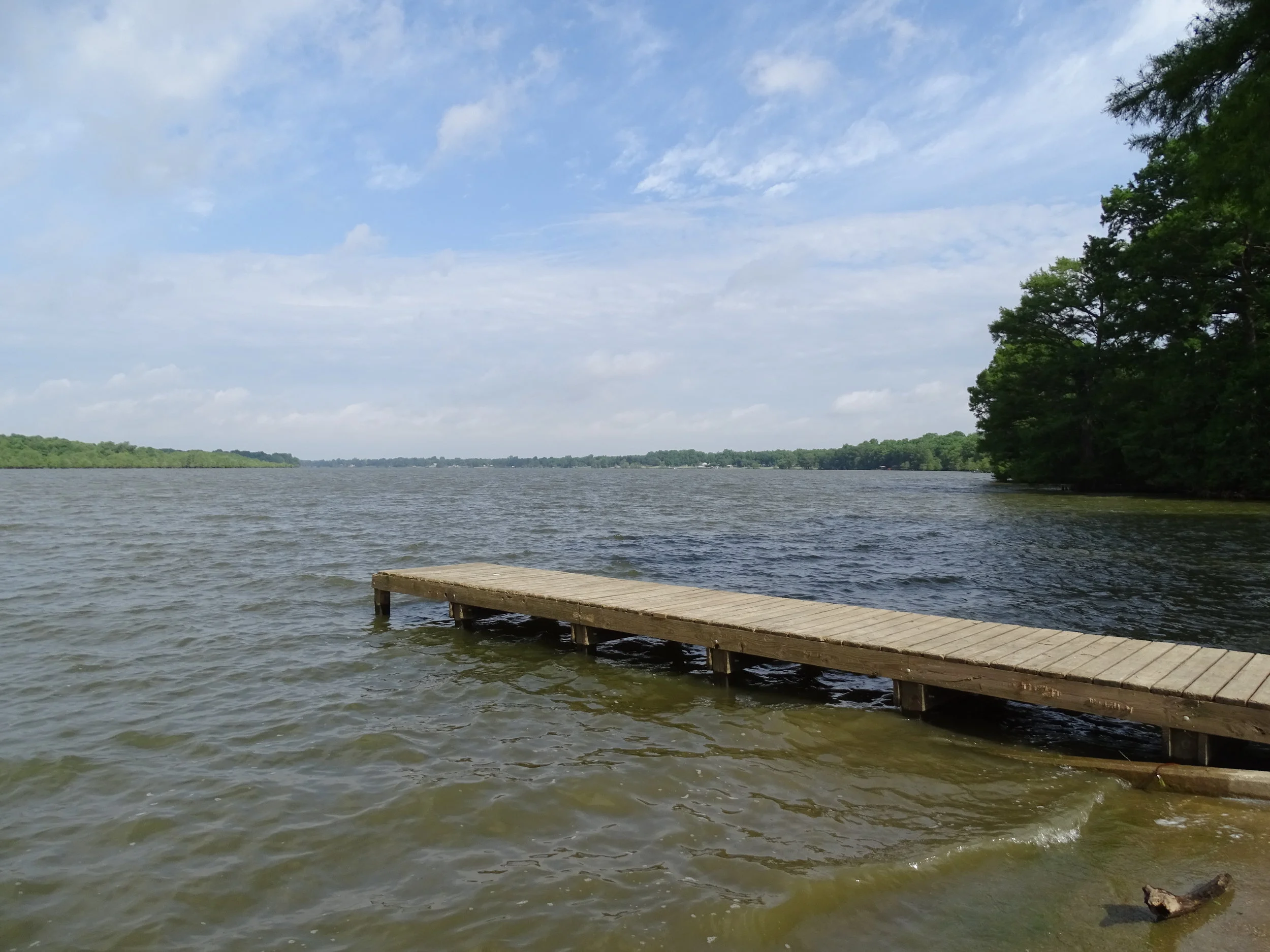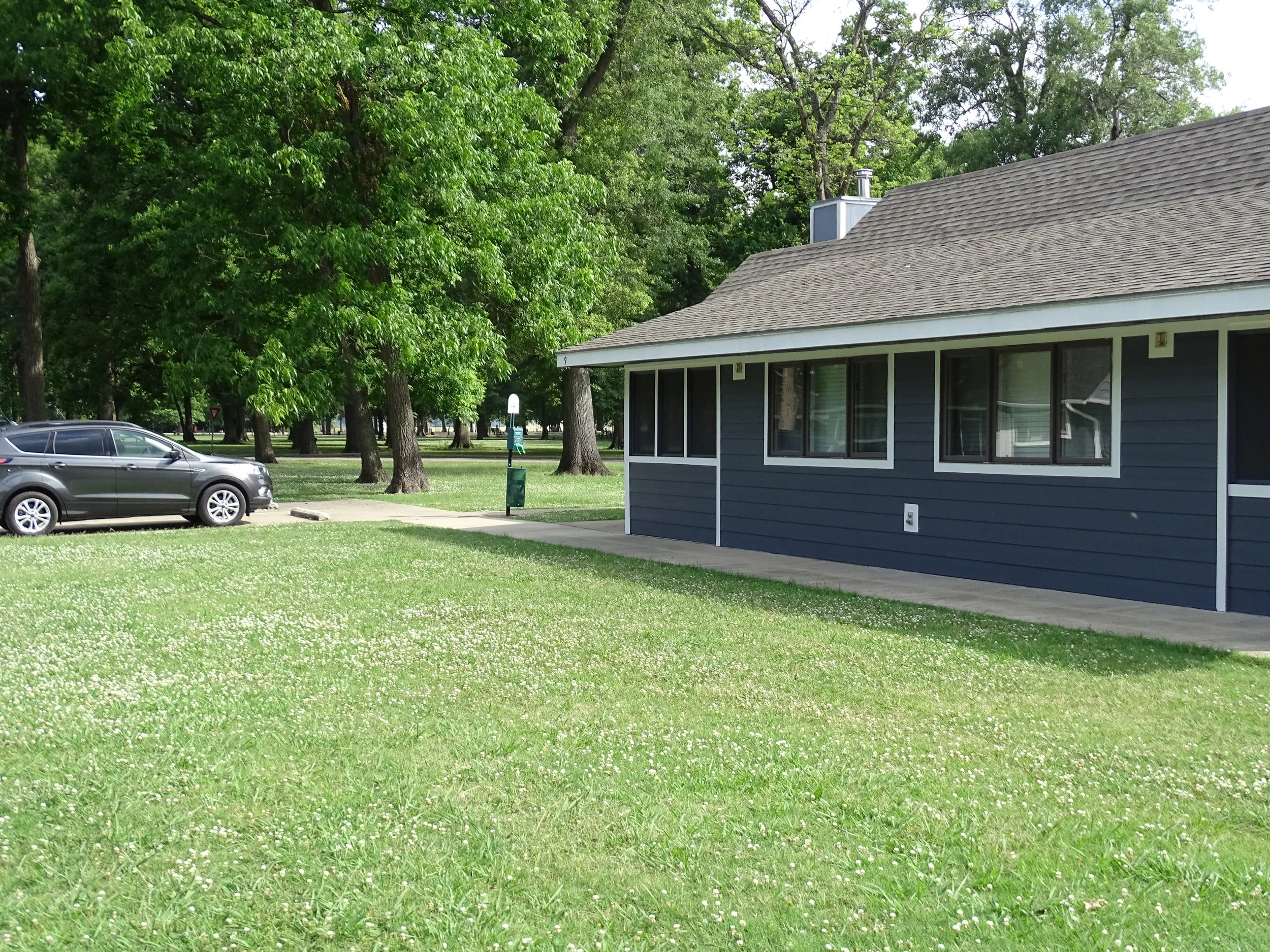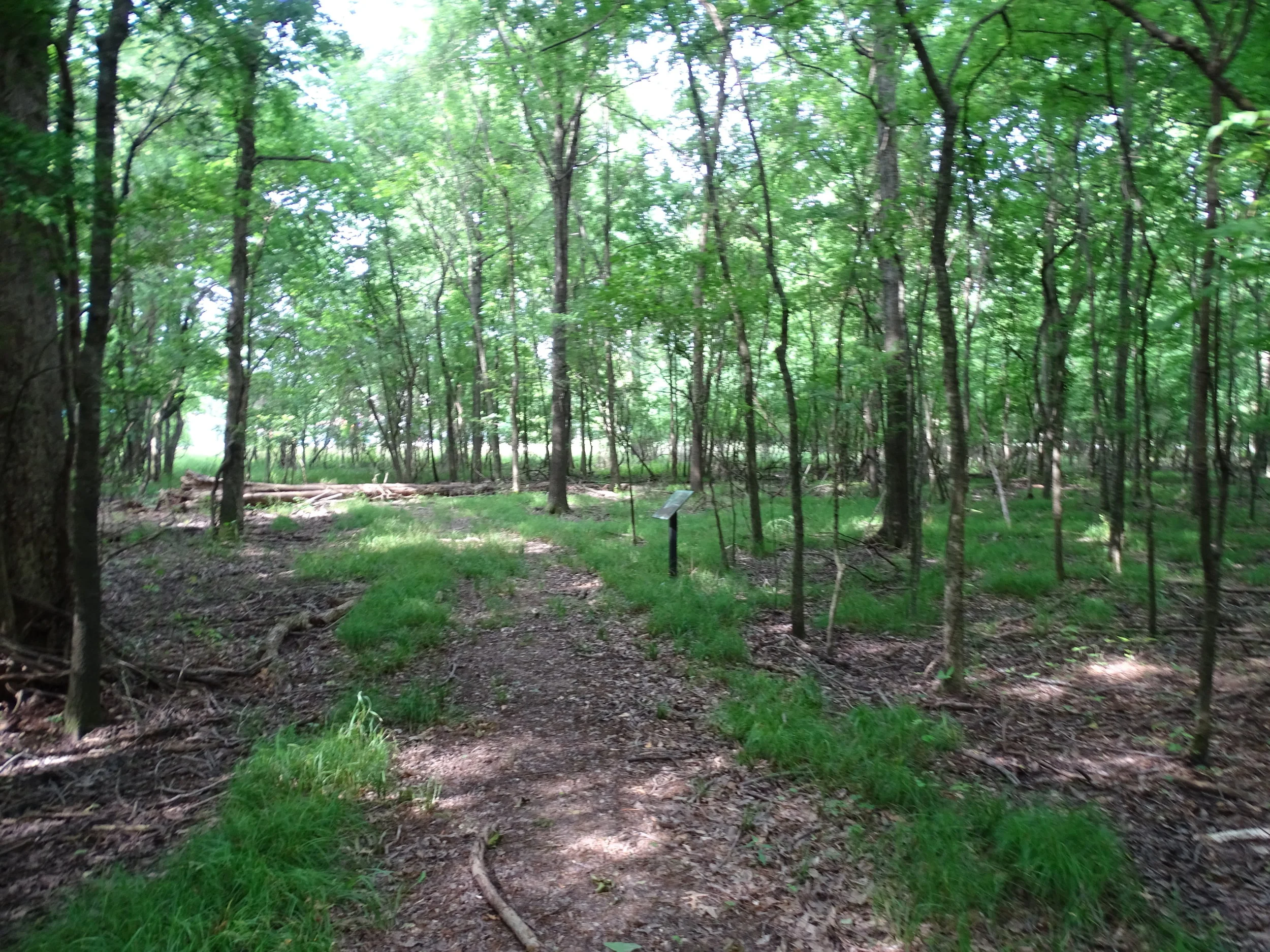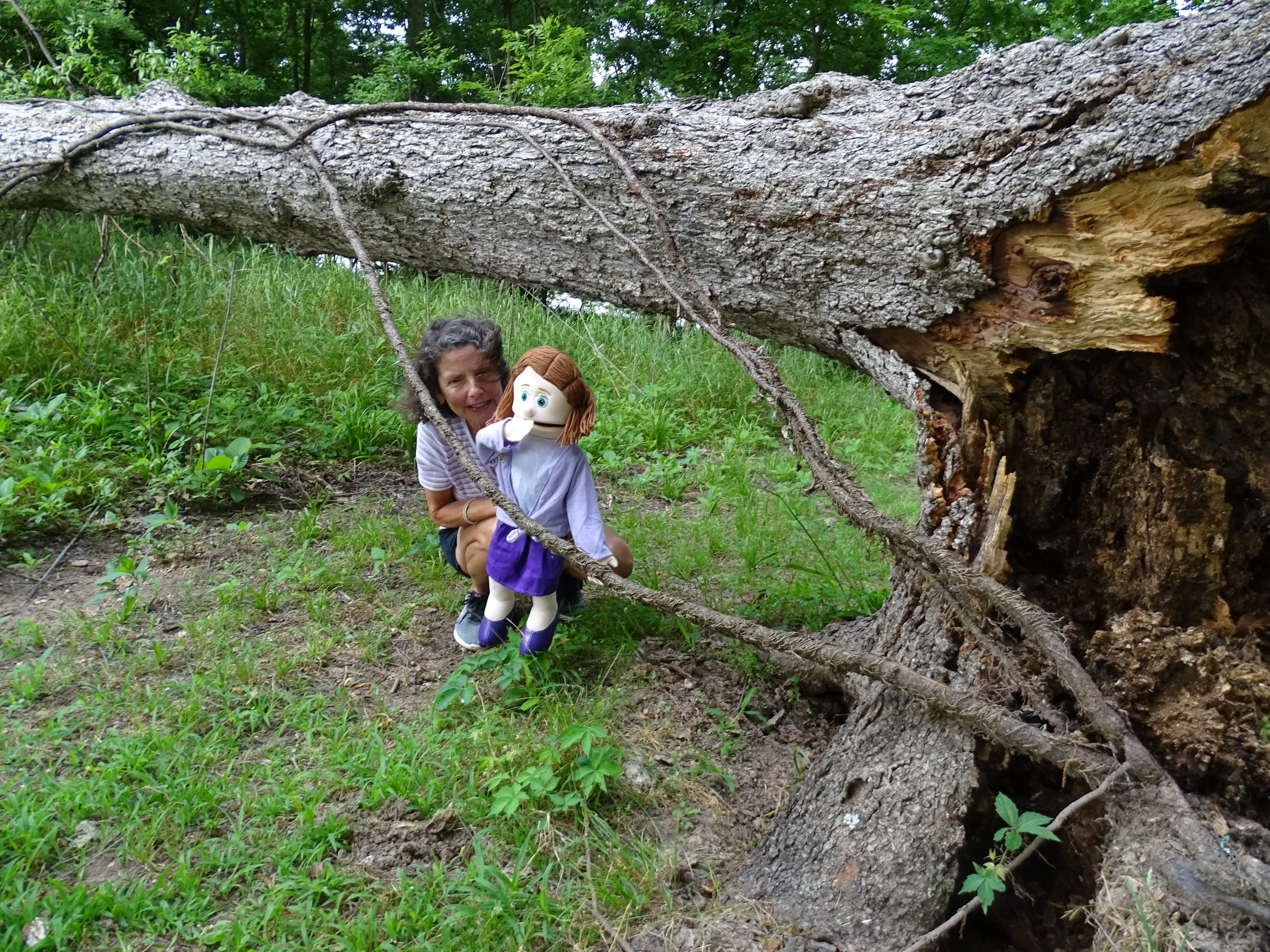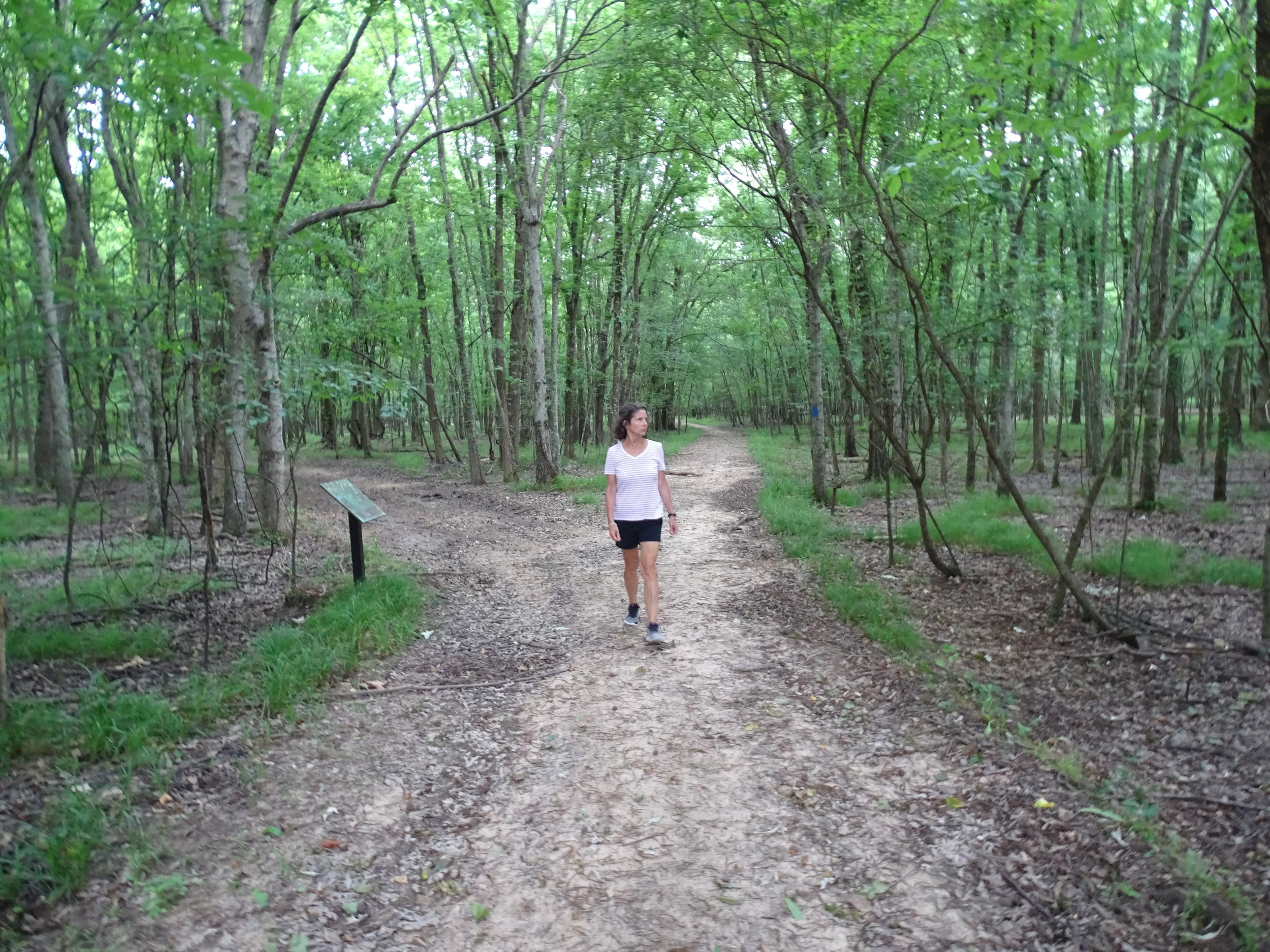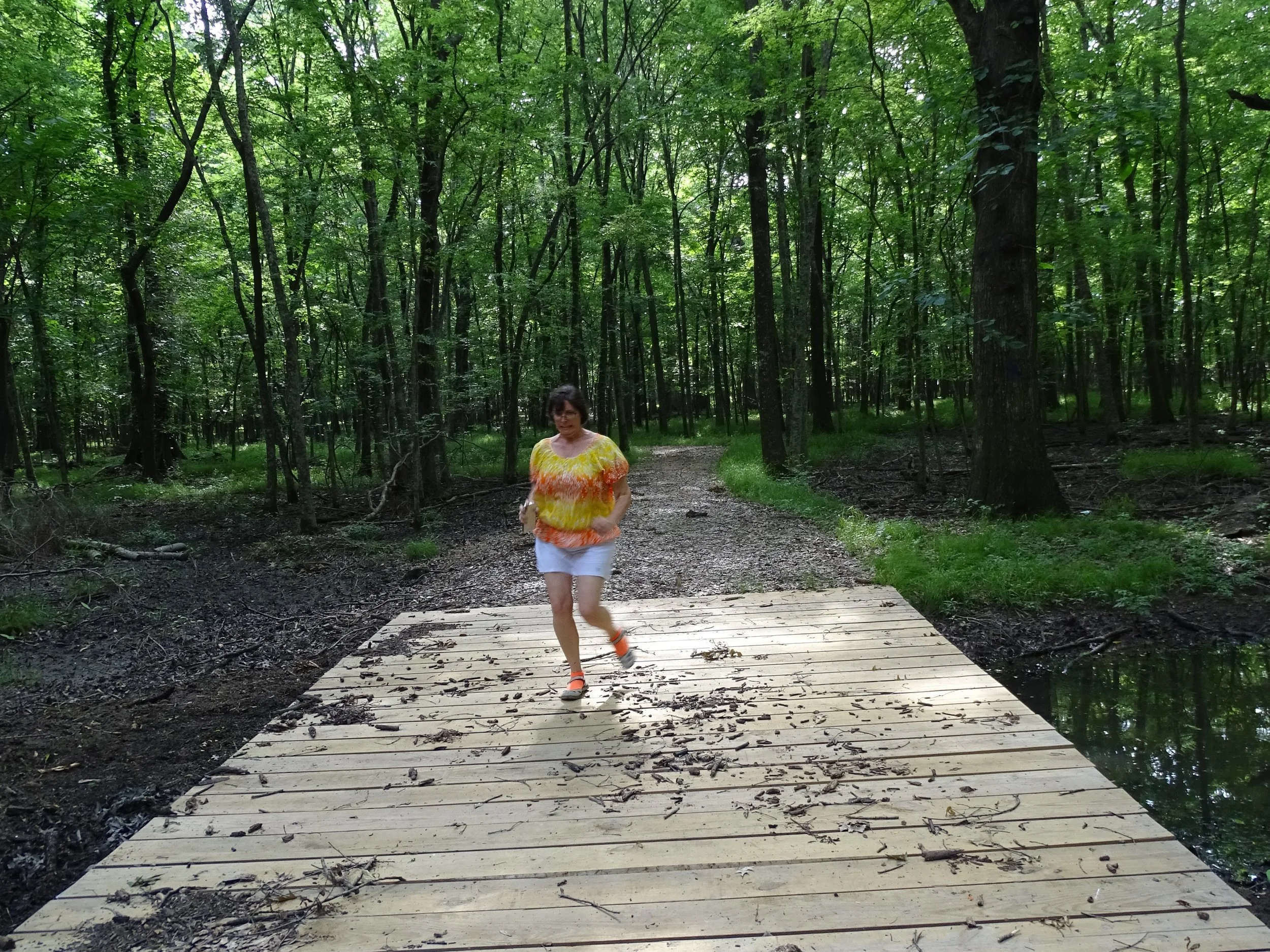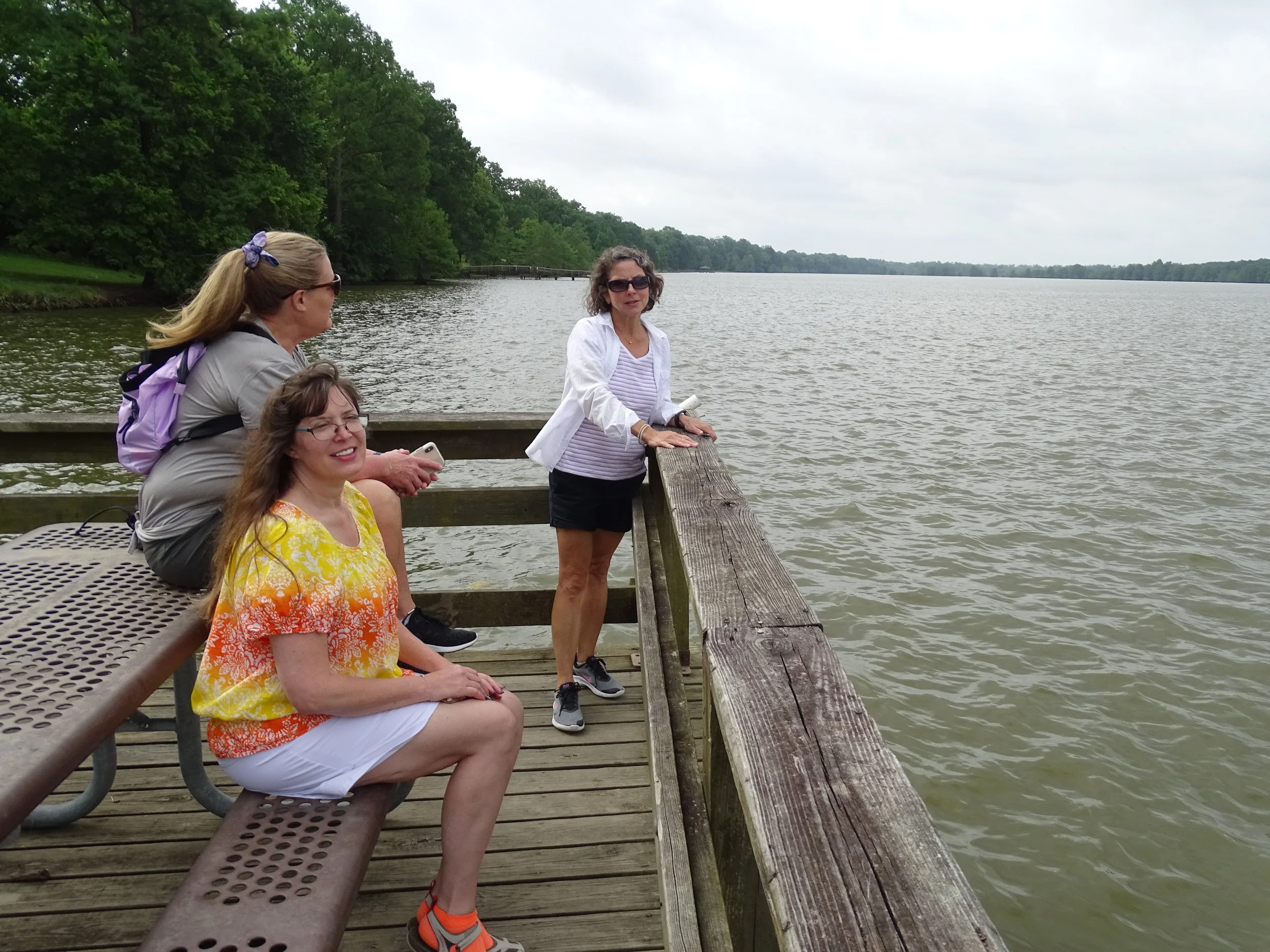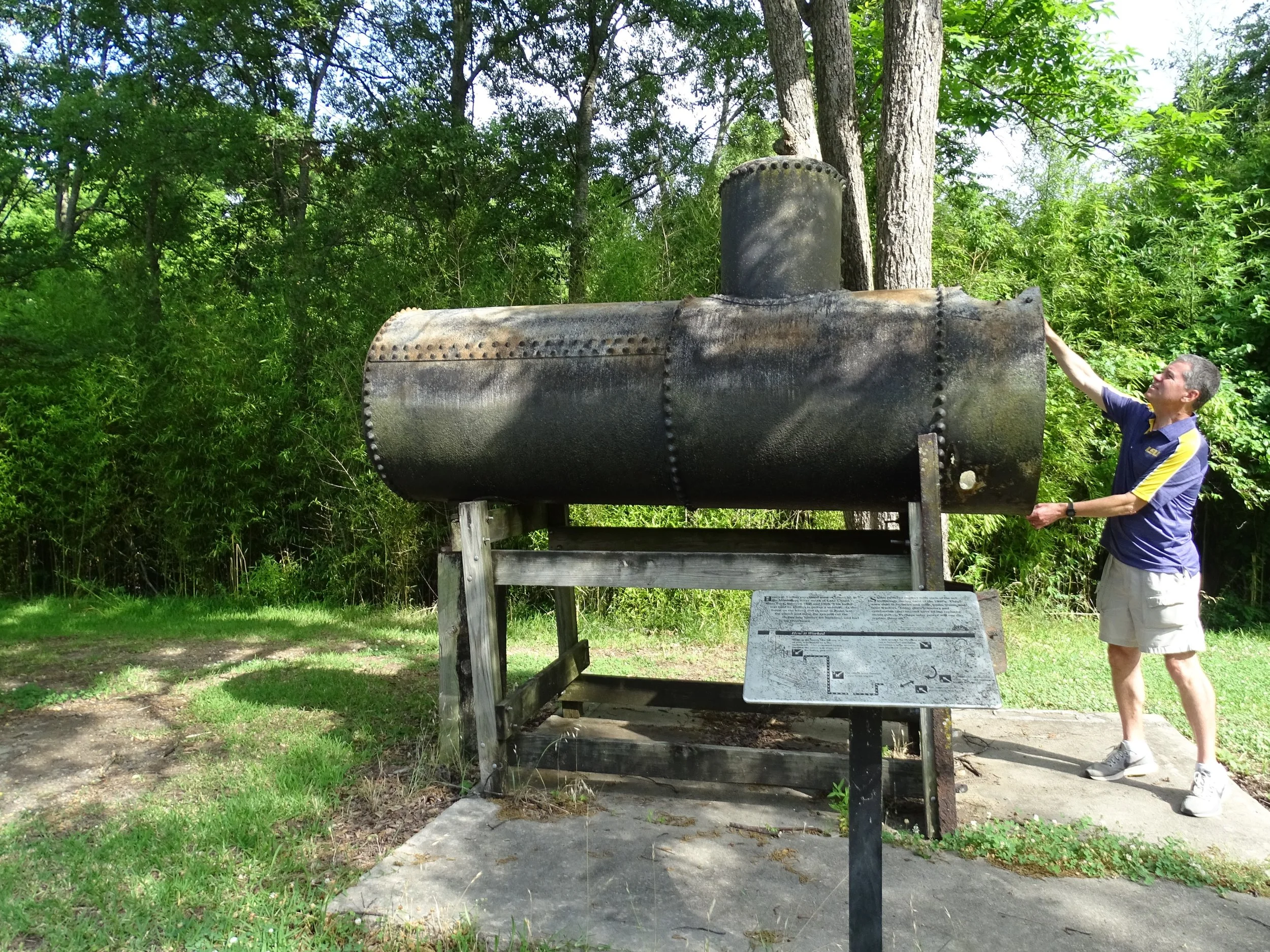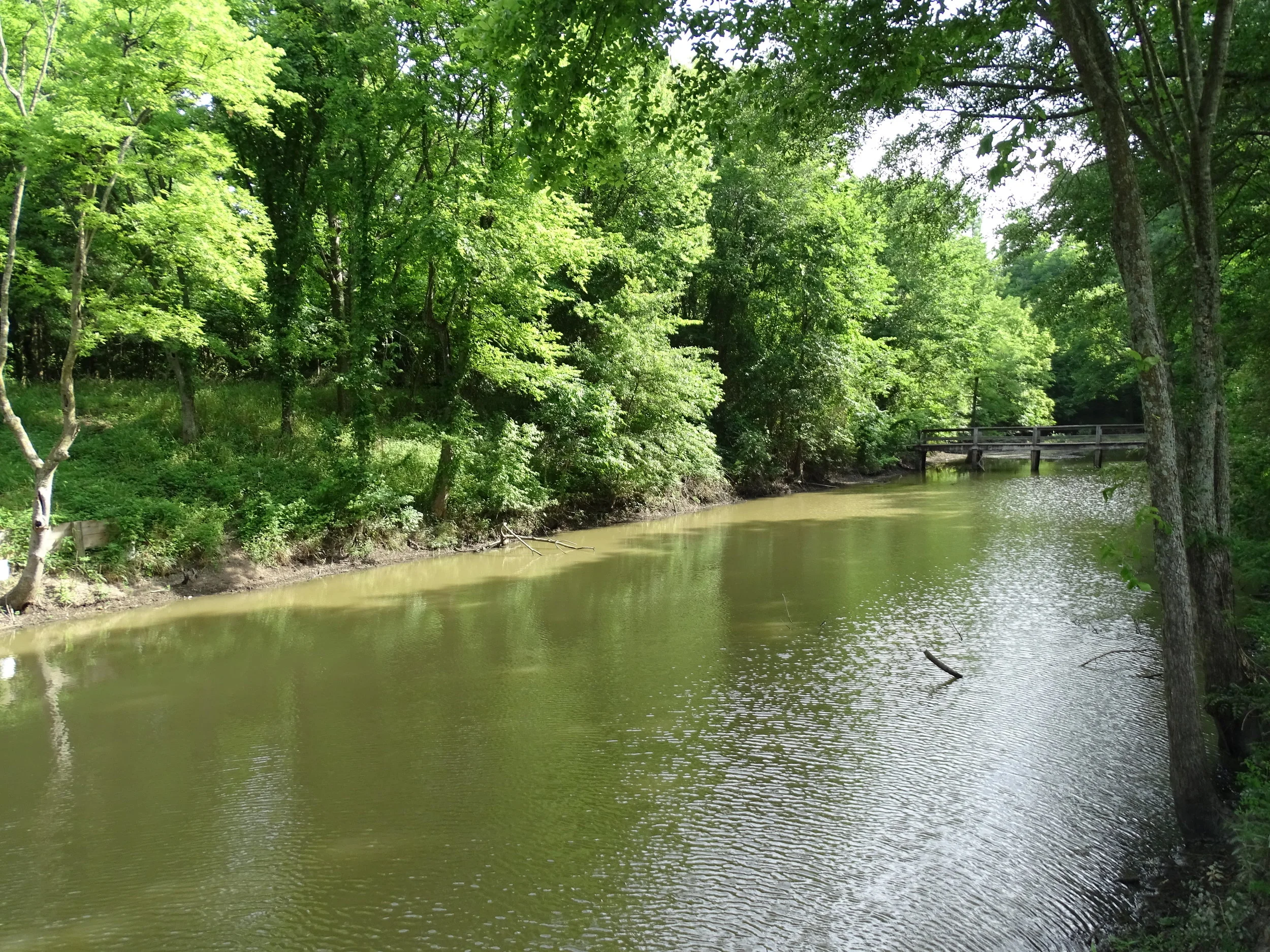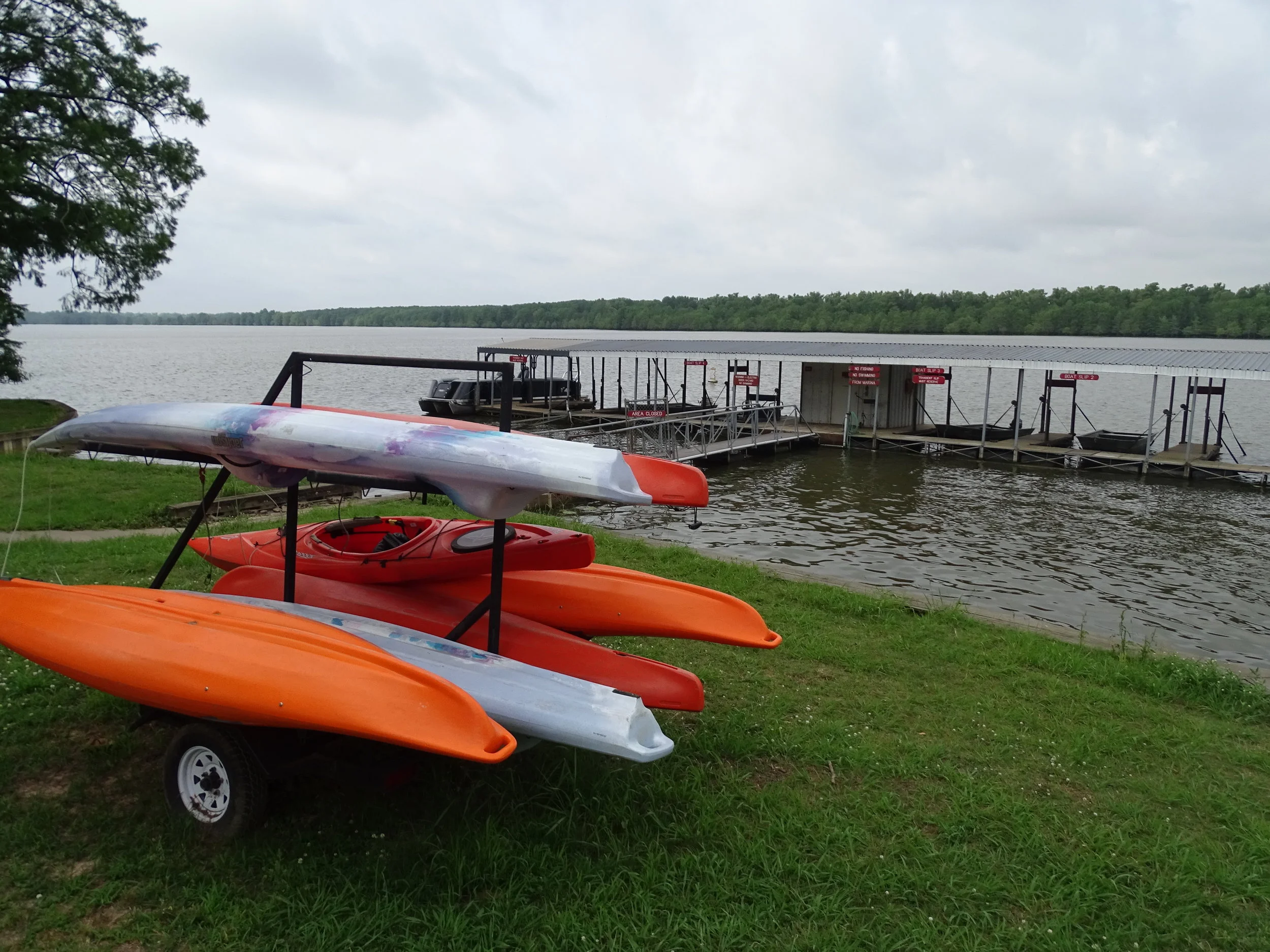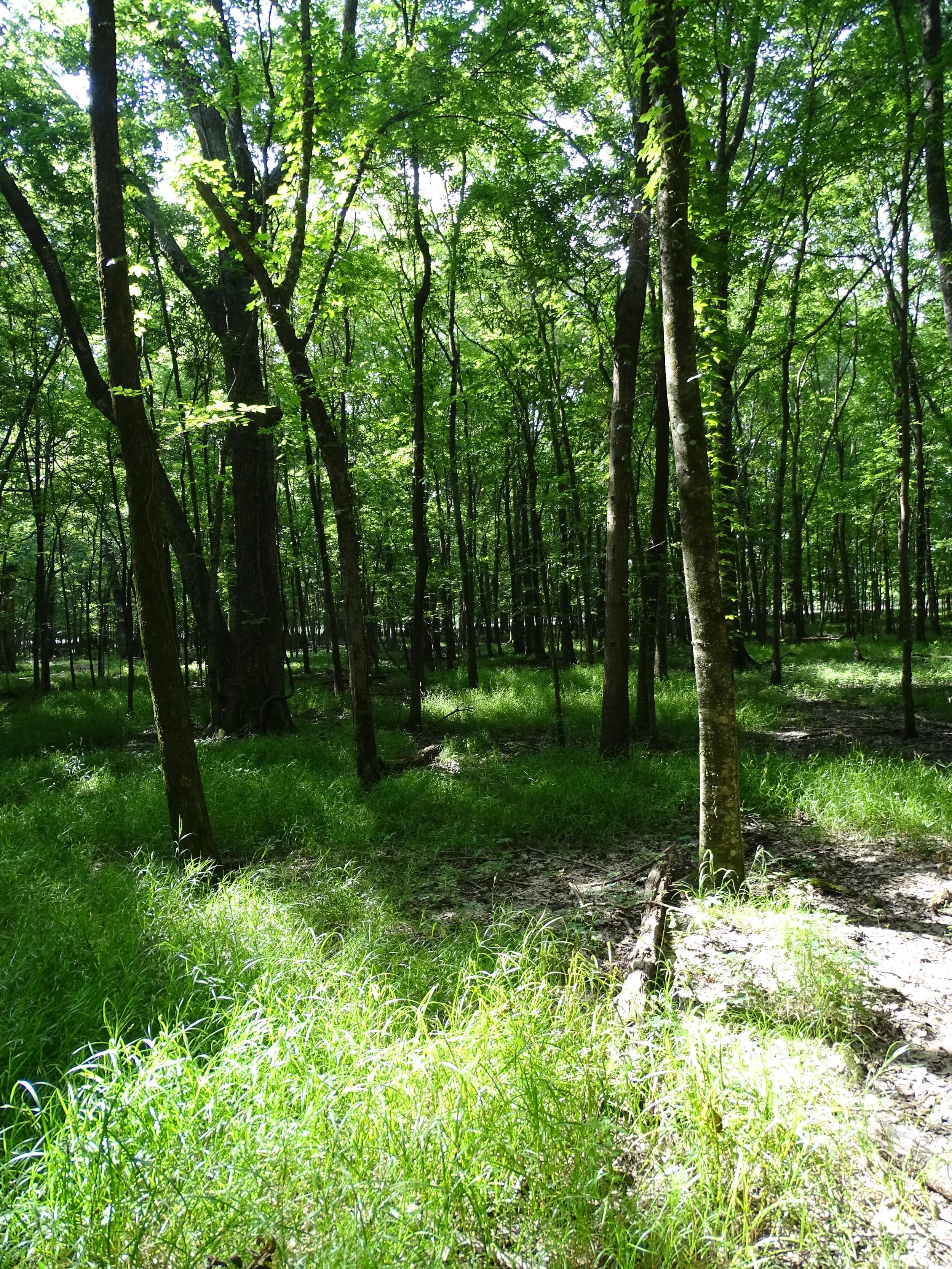Arkansas: Visit Lake Chicot State Park to See the Largest Oxbow Lake in North America
Lake Chicot State Park visitors included (left to right) Deana Grosse, Dina Draper and Linda Draper.
We made Lake Chicot State Park a priority travel destination because the lake at 22 miles long and a mile wide is the largest natural lake in Arkansas and the largest oxbow lake (shaped like the letter “C”) in North America. As the holder of those titles, we ranked it as a must-see park and went with high expectations. While the lake is pretty and would be ideal for boating and fishing, we found other parks in the state as well as in Mississippi and Louisiana to be more suitable for us—hiking and sightseeing enthusiasts.
Lake Chicot State Park provides access to an oxbow lake that is one mile wide and 22 miles long.
The park offers a campground and 14 cabins for visitors who want to stay overnight.
PARK FEATURES
Lake Chicot State Park at 2542 Highway 257 in Lake Village has 14 cabins and 122 campsites in six locations for overnight visits. The campgrounds include bathhouses and a laundry facility. The park also includes two indoor picnic pavilions for large group events and a picnic area for smaller groups. Other park features are a softball field and basketball court. You’ll also have access to a park store, marina, fish-cleaning station, playground and swimming pool (in season).
Lake Chicot State Park offers two nature trails to hikers and walkers.
Scenic areas to walk are also near the marina and campground.
A discovery nature trail can be found near the park entrance. It’s one-third of a mile long and ends at a pond. There’s also a one-mile woodlands trail that provides a close-up view of the forests surrounding Lake Chicot. It begins at the same place as the discovery nature trail.
Shopping, restaurants and other businesses needed by travelers are in the town of Lake Village about eight miles from the park. For additional information, use the Lake Chicot page on the Arkansas State Parks website.
Linda and Arla express their dismay about being under a fallen tree with the potential to keep falling.
ARLA’S SHOCKING MOMENT
While hiking along the shore of Lake Chicot, Linda and I spotted a tree that had fallen near our path. When we climbed under it to get a closer look, Linda asked, “Should we be doing this? What would happen if the skinny branches holding this hefty trunk off the ground suddenly snapped?” That’s all I needed to hear before alarms went off in my head. Somebody (as in me!) could get crushed by a falling tree here! Of course, I immediately called for a retreat and we got out of there. Whew!
Linda hikes the woodlands nature trail at Lake Chicot.
LINDA’S TAKEAWAY
During my trips to state and national parks, the first thing I seek out is a good walking or hiking path. It’s the primary reason I go to parks. While hiking, I’ve seen majestic trees, heard birds chirping, and spotted deer running through the woods. However, my journey on the Lake Chicot nature trail came to an end shortly after it began.
As I stepped out on the path, dozens of flying creatures buzzed around me and then attacked like dive bombers seeking my blood. My travel companions suggested protecting myself with insect repellant, but it didn’t work. By visiting the park store, we learned that some bug sprays have lost their effect on the local pests. A better option was to wipe vanilla extract on our exposed skin because mosquitos and gnats supposedly despise the scent. We tried it but with limited success. The bugs still blocked our path and tormented us.
Linda, Dina and Deana hike the park’s nature trails.
Deana runs for safety after a large, black snake (possibly a cottonmouth) slithered off the bridge into the water below.
Linda Draper (standing) presents her views about Lake Chicot to Deana Grosse (left) and Dina Draper.
DOUG’S HISTORICAL HIGHLIGHT
The town of Columbia, Arkansas, sat within two miles of Lake Chicot State Park, and, like many other towns near or on the Mississippi River, its life began and ended due to the river’s power. At one time, Columbia was the Chicot County seat (1833), a thriving port and the southern terminus of the first railroad line in southeastern Arkansas. However, the merciless Mississippi River eventually destroyed Columbia.
Doug inspects an old boiler that had been part of a sawmill at Lake Chicot.
GEE WHIZ FACTS
Lake Chicot used to be the main channel of the Mississippi River. When the river shifted course, it left behind an oxbow lake. Today, the lake is a protected sporting area for outdoor enthusiasts.
The nearby Mississippi River is more than 2,300 miles long and serves as a border for 10 states.
Lake Chicot State Park is home to the Arkansas state champion Nutall’s oak tree.
Wildlife often spotted at the park include raccoon, mink, bobcat, white-tailed deer, wild turkey and many species of waterfowl.
PARTING SHOTS: THINGS TO SEE AT LAKE CHICOT
A creek runs through the state park and drains into Lake Chicot.
Cypress trees pop up through the water along the Lake Chicot shoreline.
Lake Chicot State Park includes a marina and boat ramp.
The hiking and nature trails at Lake Chicot are scenic.
The woods around Lake Chicot were wet when we visited and full of flying insects.
Dina took the parting shot of the photographer.


